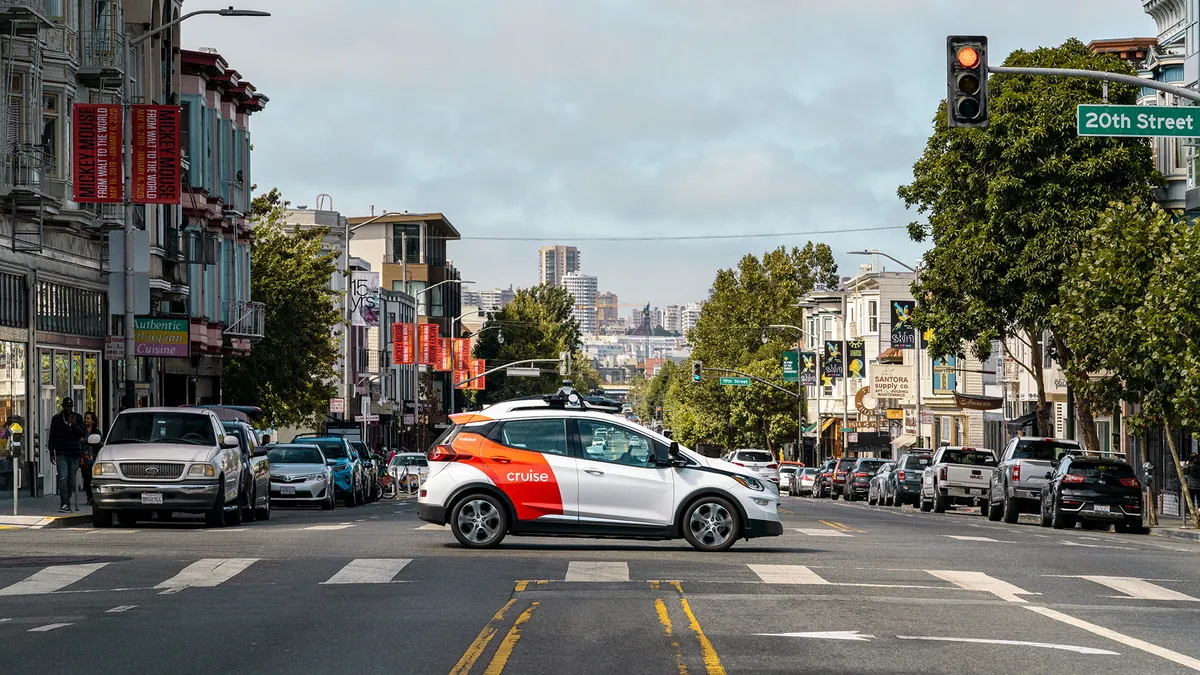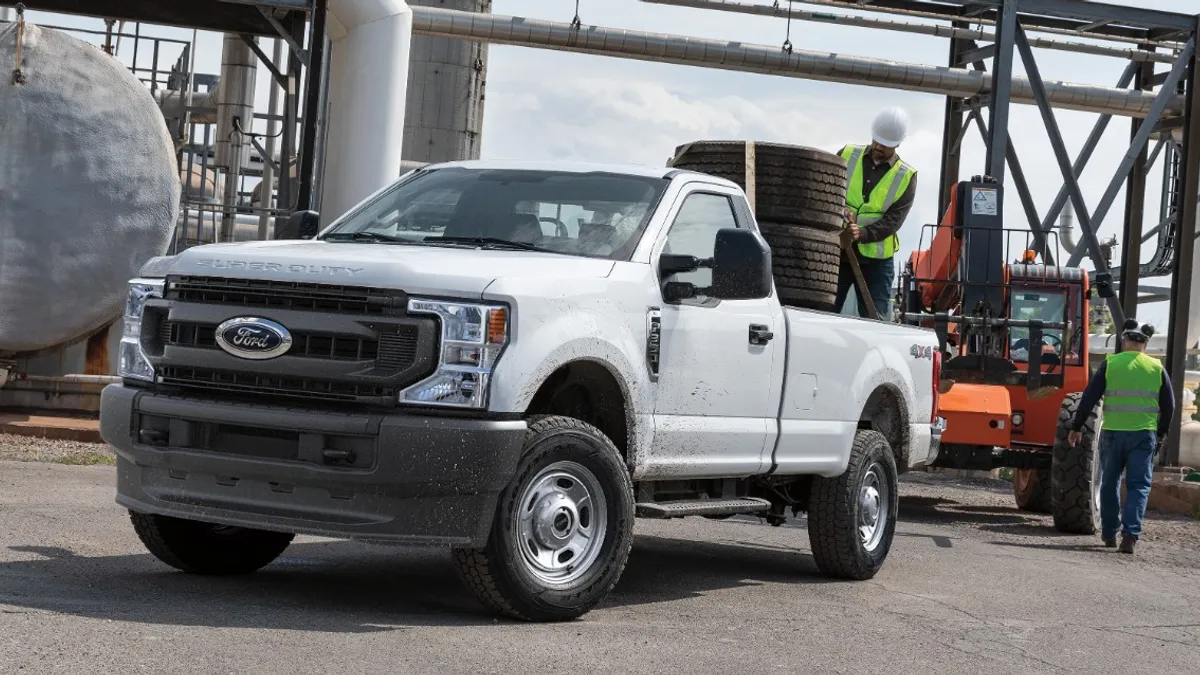Dive Brief:
- General Motors Co. plans to use the Chevrolet Bolt for future autonomous vehicles, rather than the Cruise Origin, executives revealed as part of its Q2 earnings report on Tuesday.
- “It's a win-win for both GM and Cruise,” Chair and CEO Mary Barra said during the company’s earnings call. “It addresses the regulatory uncertainty we face with the Origin because of its unique design. Per unit costs will be much lower, which will help Cruise optimize resources and enable them to deliver AV tech at scale as quickly as possible.”
- As part of the pivot, the automaker paused production of the Origin, which EVP and CFO Paul Jacobson said resulted in a $600 million hit to GM’s bottom line during Q2.
Dive Insight:
Aside from special item costs associated with the Origin delay, Cruise expenses were $450 million in Q2, a $150 million year-over-year decrease.
Barra highlighted the unit’s progress over the last several months in GM’s letter to shareholders.
“Our vision to transform mobility using autonomous technology is unchanged, and every mile traveled, and every simulation, brings us closer because Cruise is an AI-first company,” she said.
GM said it would bring back the Chevy Bolt EV last July, ditching its earlier plan to discontinue the model. During the earnings call, Barra said adding AV features to the Bolt would allow the company to leverage its investment in the model and introduce a major new customer for the product.
“We think all of these are important steps that will help us attract those who believe in the Cruise mission and see the incredible long-term business opportunity of autonomous driving,” she said during the earnings call.
Meanwhile, Jacobson said the momentum for GM’s EV portfolio is growing, highlighting the segment’s 34% growth in deliveries over Q1. The growth in Q2 was driven by the Chevrolet Blazer EV and the Cadillac LYRIQ, and Jacobson said the company expects additional growth following the introduction of the Chevrolet Equinox EV, which will have more than 300 miles of range.
GM anticipates producing between 200,000 to 250,000 EVs in 2024.














